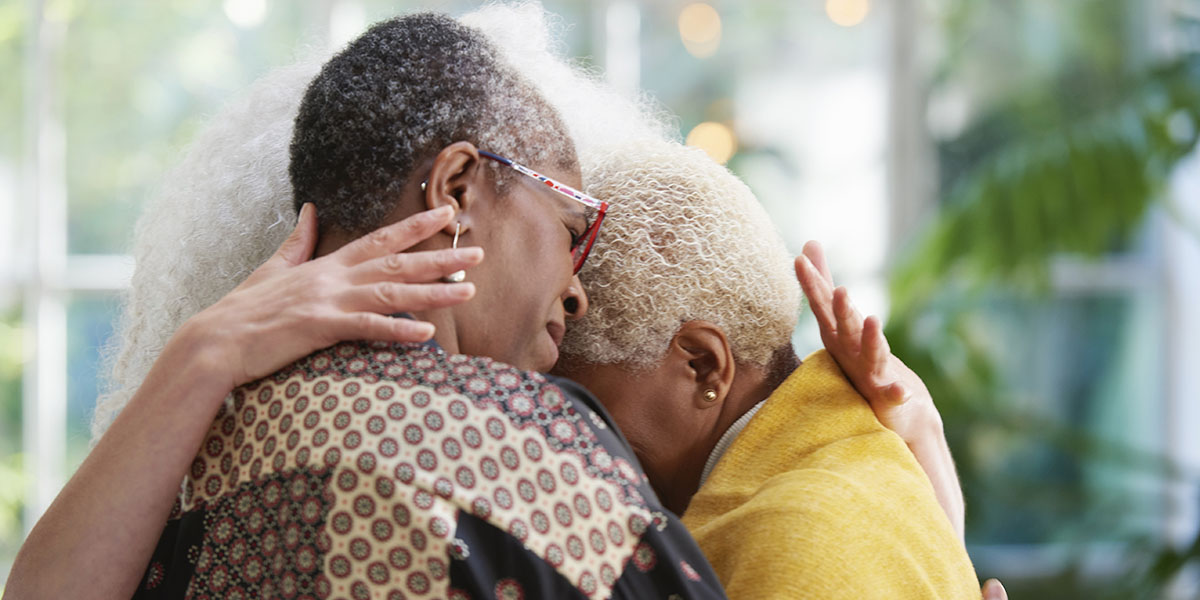
About
If you are grieving the loss of a loved one, we are here to offer support. Here are a few reminders about grief when you are having a hard moment, day, week or month:
- Everyone experiences grief differently.
- There is no timeline for grief.
- Our life experiences have a big impact on how we grief, including our gender, roles in our family and relationship to the deceased.
What is Grief?
You will hear those of us in hospice use several terms related to grief. Basically, grief is the intense emotional suffering caused by loss. How a person expresses that grief is called mourning. Most of us have rituals associated with mourning. An example is wearing black to funerals. You will hear us say the word bereavement. This is a term used for grief that is specific to losing someone to death.
Mourning is hard work, and sometimes, we get caught up in what others have attributed to grief.
Grief is not:
- An illness
- A sign of weakness
- A neat, predictable reaction to loss
- An indication of “going crazy”
- Depression
- Experienced the same way by all people with a similar loss
Processing Grief
Grief affects our whole being and is manifested in different ways, including:
- Physically: Difficulty sleeping, sleeping too much, loss of appetite, emotional eating, upset stomach, feeling achy, being prone to illness, fatigue
- Mentally: Trouble concentrating, confusion, forgetfulness, preoccupation with loss
- Behaviorally: Withdrawing from social activities, avoiding other people, not wanting to be alone, immersing yourself in an activity, eating more or less, doing something out of character
- Spiritually: Changes in belief system, asking why, turning away or clinging to faith, search for meaning in death
- Emotionally: Experiencing several emotions at once, saying things you’ve never said before, crying or feeling angry more often than usual
When to Seek Support
Everyone should seek support when grieving a loss, whether it’s from family and friends or a support group or counselor. If grief is getting in the way of your ability to function on a daily basis, talk to your primary care provider. Also consider seeking counseling or joining a support group.
Self-Care When Grieving a Loss
- Be gentle and patient with yourself: It’s okay to allow yourself to feel your emotions – that is a strength, not a weakness.
- Stay connected: Stay in touch with family members and friends for support.
- Create new rituals: The holidays can be difficult when you’ve lost a loved one. Consider creating new rituals that help you honor and remember your loved one.
How to Support Someone Grieving a Loss
If someone you know has lost a loved one, it can be hard to know what to say. The best thing you can do is listen to them and validate how they are feeling. Perhaps share a story about their loved one. Avoid saying, “I know how you feel,” and sharing your own story of grief.
Instead of asking them to call you if they need anything, take a more proactive approach: Offer to pick up groceries that week and ask what day will be best, or invite them to lunch or dinner.












